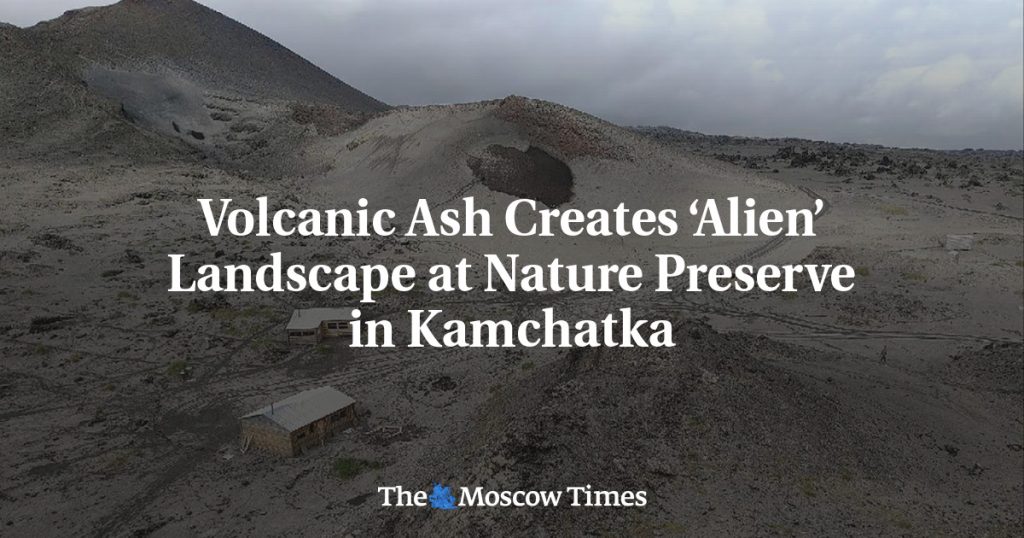A recent volcanic eruption in Far East Russia has left the remote landscape of a major nature preserve covered in ash. The Bezymyanny volcano, one of Kamchatka’s most active, erupted with ash spewing up to 12 kilometers into the Earth’s atmosphere. The ash plumes extended around 2,500 kilometers southeast of the volcano, with a giant ash cloud stretching 360 kilometers in length and 125 kilometers in width remaining over the peninsula days after the eruption. The eruption, which began explosively, transitioned into an effusive eruption accompanied by hot avalanches and powerful gas-steam activity.
The aftermath of the eruption resulted in a thick layer of gray ash covering the entire territory of the Kleshnya cordon in Klyuchevsky Park, creating a surreal image in the once pristine landscape. The eruption posed a serious test for the local flora and fauna, forcing them to adapt to the new conditions. The park service urged visitors and residents to avoid the eruption site until the situation stabilizes, as authorities continue to monitor the volcanic activity. The Volcanic Eruption Response Team also warned that international and local airlines faced a moderate potential hazard due to the volcanic ash.
Bezymyanni volcano was considered extinct until it erupted in 1956, with the latest eruption being part of a series that began in 2017. The ongoing volcanic activity in the region serves as a reminder of the dynamic nature of the Earth’s geological processes and the constant threat posed by active volcanoes. The eruption highlights the need for robust monitoring and response systems to protect both human populations and the local ecosystem from the impacts of volcanic events. The eruption also underscores the resilience of nature in the face of such disturbances, as flora and fauna in the area are forced to adapt to the new conditions.
The Moscow Times, a prominent news outlet, shared the news of the volcanic eruption in Far East Russia, highlighting the challenges faced by independent journalism in the country. The publication has been labeled as an “undesirable” organization by Russia’s Prosecutor General’s Office, putting their staff at risk of prosecution. Despite these challenges, The Moscow Times journalists continue to strive to provide accurate and unbiased reporting on Russia. The publication relies on the support of its readers to continue its work in the face of repression, with contributions making a significant impact on defending open, independent journalism.
As the aftermath of the volcanic eruption in Far East Russia continues to unfold, the focus remains on the impact of the event on the local environment and wildlife. The thick layer of ash covering the landscape presents a significant challenge for the flora and fauna in the area, which must adapt to the new conditions. The eruption serves as a reminder of the power of nature and the need for preparedness and response mechanisms to mitigate the impact of such events. The ongoing monitoring of volcanic activity in the region will be crucial in ensuring the safety of residents and visitors, as well as the preservation of the delicate ecosystem.


